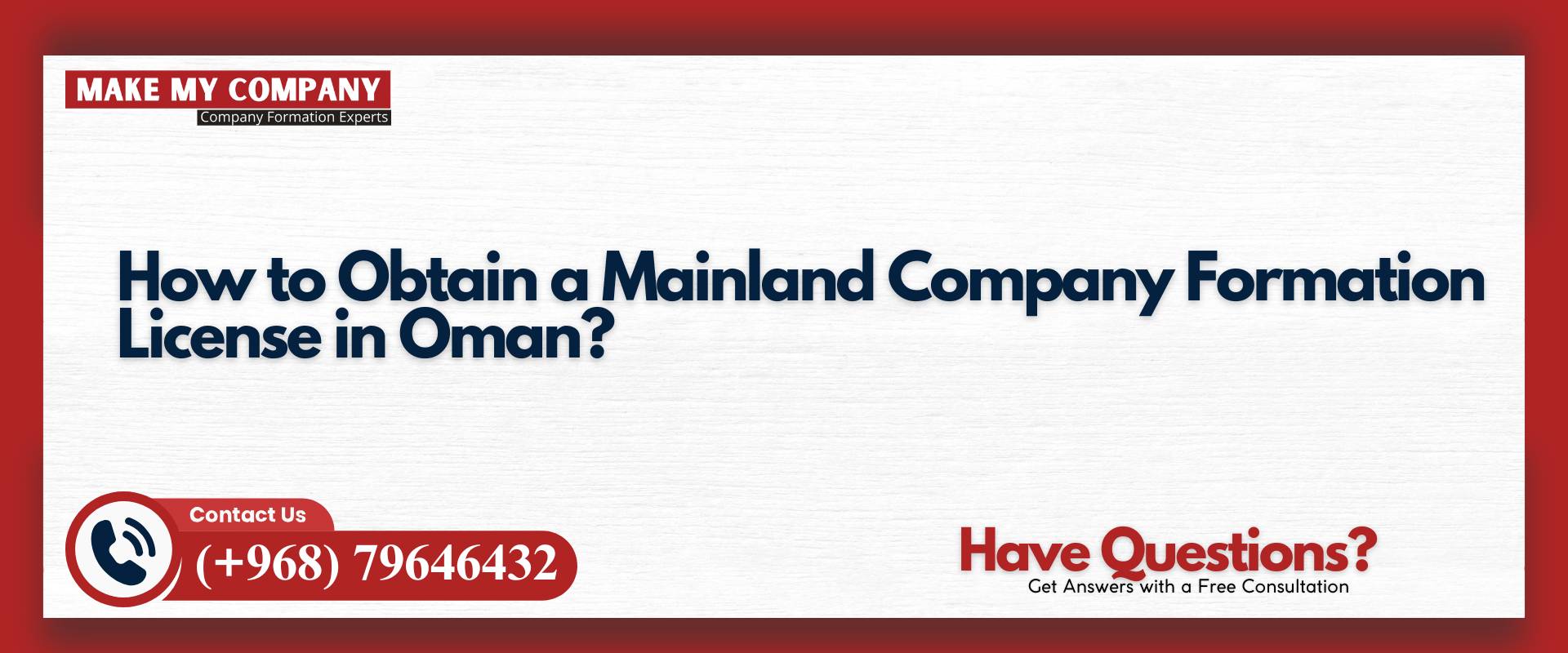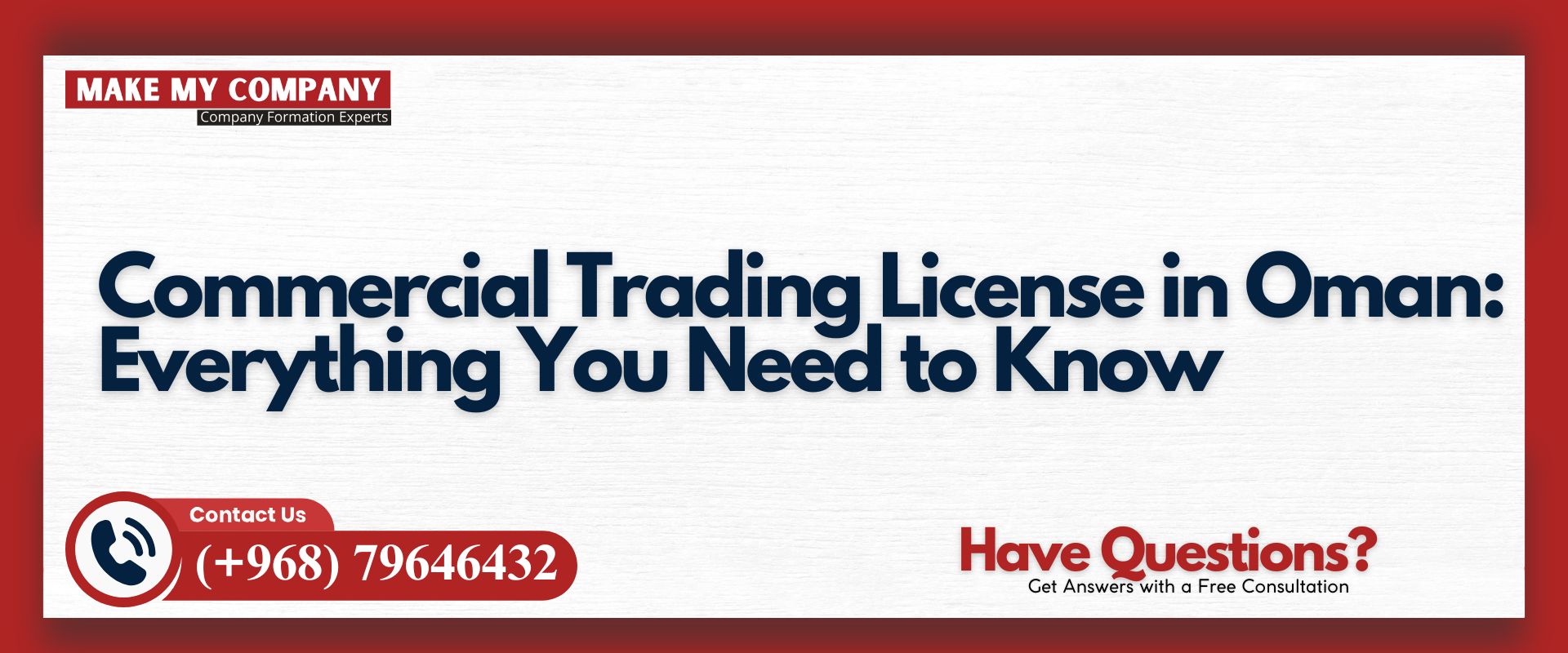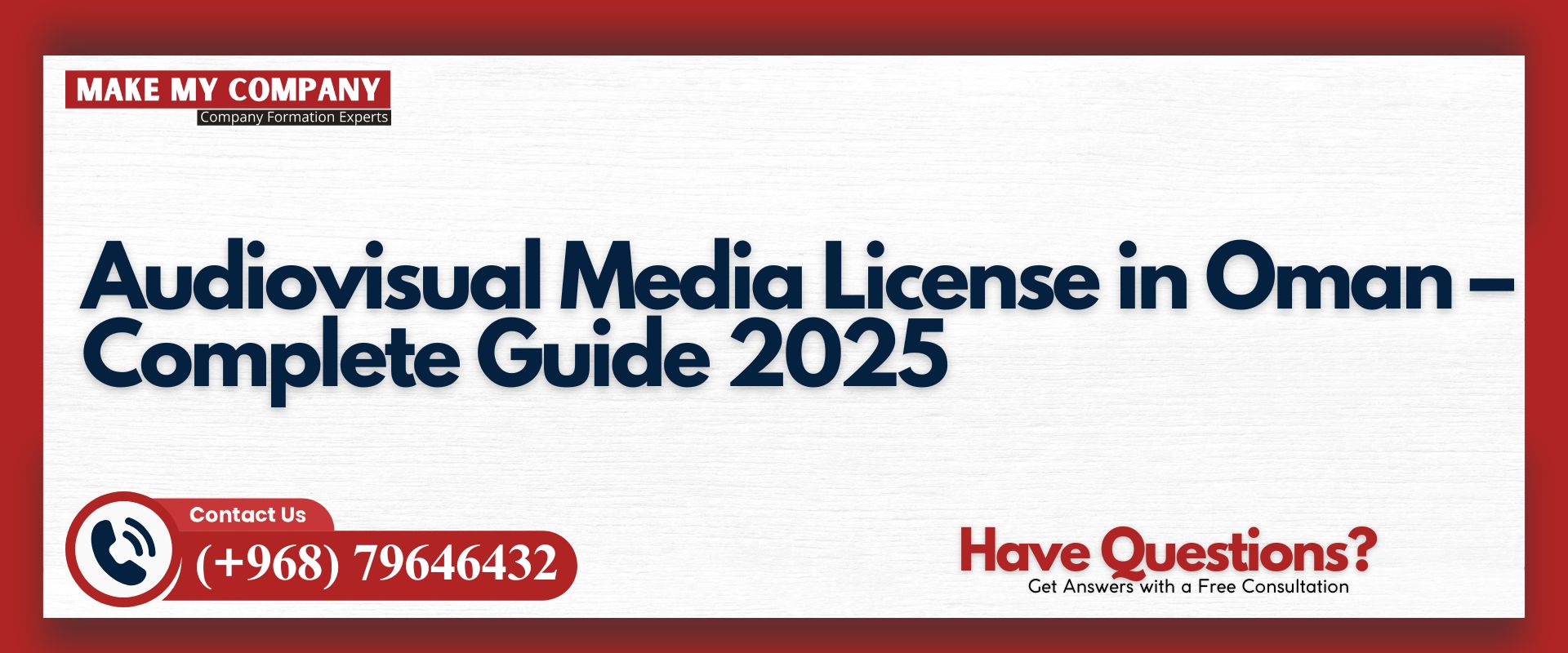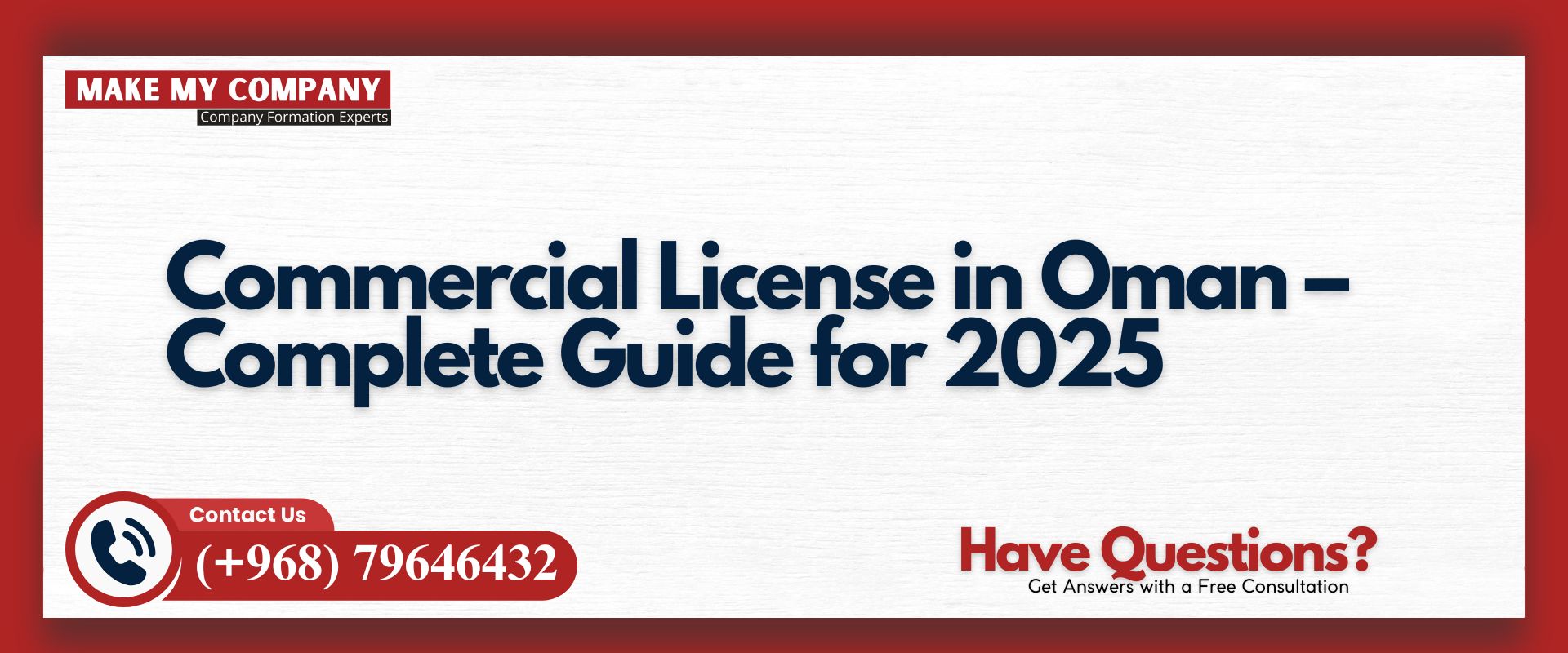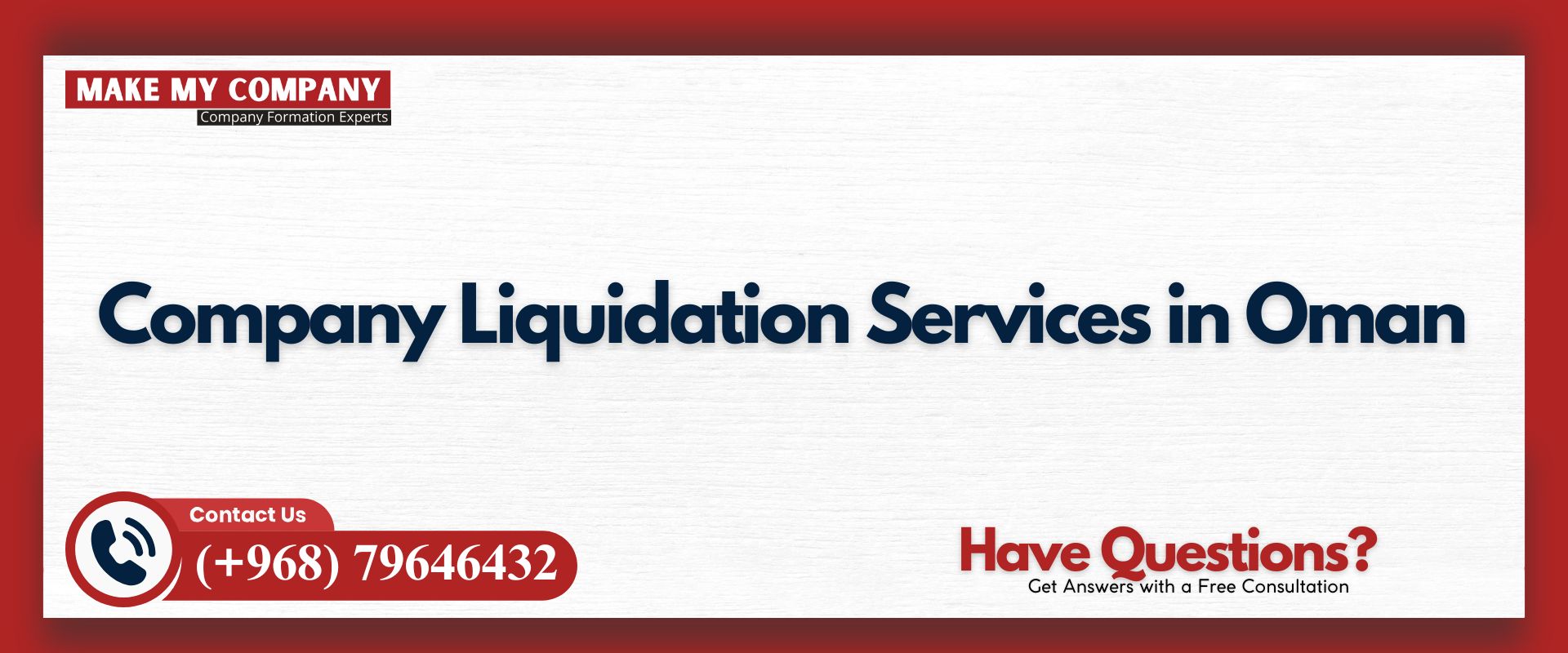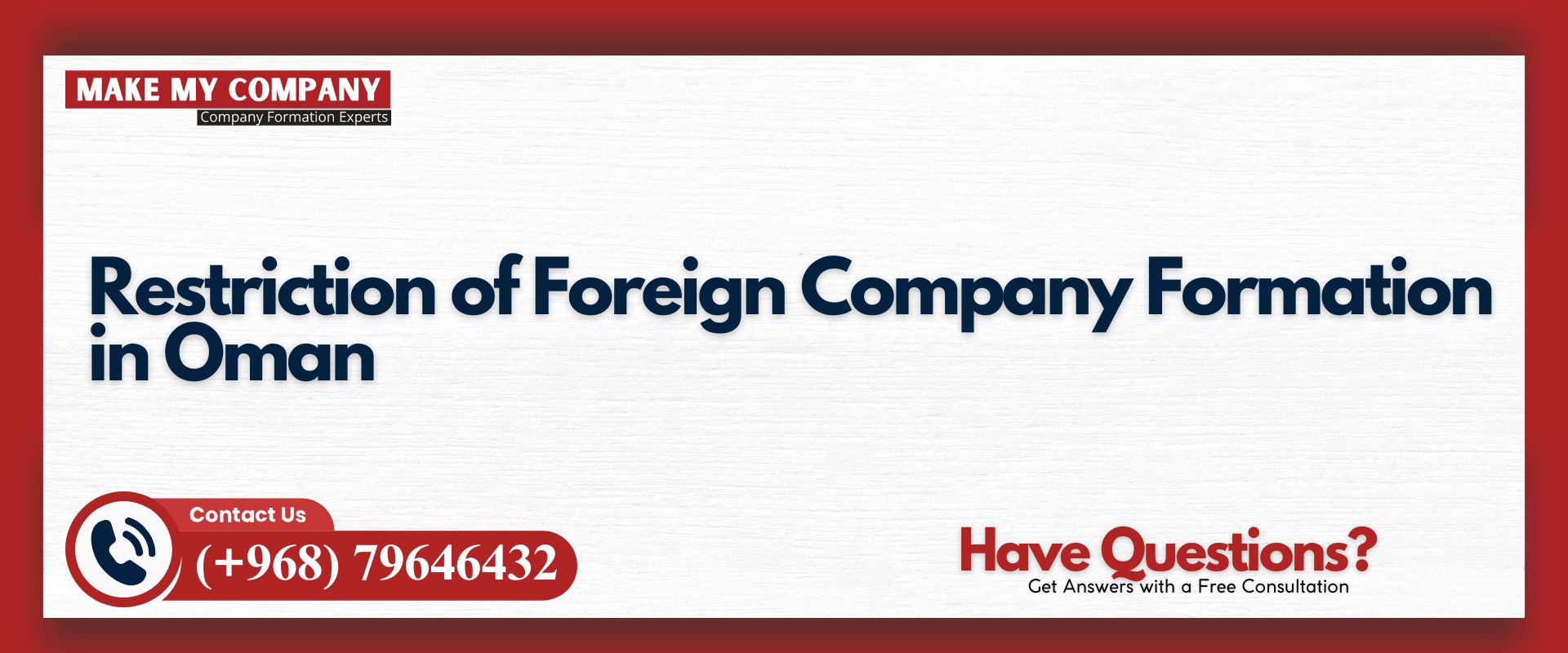Setting up a business in Oman is an appealing prospect for entrepreneurs aiming to expand into the Middle East. The Sultanate’s strategic location, business-friendly regulations, and thriving economy make it a hotspot for investors worldwide. One of the most popular routes for establishing a business in Oman is obtaining a Mainland Company Formation in Oman license. We will provide an in-depth look into the process, requirements, and benefits of setting up your business on the mainland, with expanded details to fully understand the steps and requirements involved.
Why Choose Mainland Company Formation in Oman?
Oman’s mainland offers several advantages for business owners. Unlike free zones, mainland companies can conduct business directly with the local market, providing unparalleled access to a vast customer base. Here are some reasons why entrepreneurs prefer a Mainland License in Oman:
- Freedom to trade: No restrictions on trading within Oman or internationally, enabling businesses to operate seamlessly across borders and tap into both regional and global markets.
- Business opportunities: Mainland companies can bid on lucrative government projects and establish strong relationships with public and private sector entities, often gaining access to exclusive contracts and high-value partnerships.
- Office flexibility: Businesses can choose office spaces across Oman, offering flexibility in operations and the ability to scale operations based on market demand. This is particularly advantageous for businesses looking to expand over time.
- Diverse ownership structures: Options include sole proprietorships, partnerships, and LLCs, catering to various business models and ensuring suitability for different business types. This diversity allows investors to align their business structures with their goals and operational needs.
- Robust legal framework: Oman’s legal system supports investors with clear regulations that safeguard business interests and provide a secure environment for long-term growth.
Legal Structures for Mainland Company Formation in Oman
Choosing the right legal structure is crucial for your business operations. The legal structure determines ownership rights, liability, and operational flexibility. Here are the common options available:
Limited Liability Company (LLC)
- Ideal for: Small to medium-sized enterprises (SMEs) aiming for flexibility and limited liability.
- Ownership: Requires at least two shareholders. Foreign ownership is allowed up to 70%, while Omani nationals hold the remaining 30%, although exemptions may apply in specific sectors.
- Liability: Limited to the value of the shareholders’ contributions, protecting personal assets from business liabilities.
An LLC is a popular choice due to its balanced approach to liability protection and ownership flexibility. It allows businesses to operate with confidence, knowing their personal assets are secure.
Sole Proprietorship
- Ideal for: Individual entrepreneurs looking for full control of their business.
- Ownership: Fully owned by one person, who must be an Omani national or a GCC citizen.
- Liability: The owner bears unlimited liability for debts, making it essential to carefully assess risk.
Sole proprietorships offer simplicity in setup and management, but the unlimited liability can pose a risk, especially for high-investment businesses.
Joint Partnership
- Ideal for: Businesses requiring collaboration between two or more partners.
- Ownership: Can include both Omani nationals and foreigners, with terms defined by mutual agreement.
- Liability: Varies depending on the partnership agreement and the nature of involvement of each partner.
Joint partnerships are an excellent option for businesses that require multiple skill sets and resources to operate effectively.
Branch of a Foreign Company
- Ideal for: Multinational corporations expanding into Oman.
- Ownership: 100% foreign ownership allowed, offering full control to the parent company.
- Purpose: Typically used for executing government or private-sector contracts, with limited involvement in local trade.
Branches are ideal for companies seeking to establish a presence in Oman without forming a separate legal entity, ensuring streamlined operations.
Steps to Obtain a Mainland License in Oman
Step 1: Select Your Business Activity
The first step in the process is identifying your business activity. Oman’s Ministry of Commerce, Industry, and Investment Promotion (MOCIIP) categorizes activities into various sectors, including trading, manufacturing, and services. Selecting a suitable activity ensures compliance with legal requirements and aligns with market demand. Understanding market trends can also help you choose a niche with significant growth potential.
Step 2: Choose a Trade Name
Selecting a trade name is vital for your company’s identity. The name should:
- Reflect the nature of your business and resonate with your target audience.
- Be unique and not already registered by another business.
- Comply with Oman’s naming conventions (e.g., no offensive terms or prohibited language).
Once finalized, submit the name for approval to MOCIIP, ensuring it adheres to all regulatory guidelines. A compelling trade name can enhance brand recall and market visibility.
Step 3: Arrange a Local Sponsor (if required)
For certain legal structures like LLCs, foreign investors may need an Omani sponsor to hold a 30% stake. The sponsor could be an individual or a corporate entity. This arrangement provides the necessary local representation and enhances access to local business networks. Ensure your sponsorship agreement is transparent, legally binding, and beneficial for both parties. Building a strong relationship with your sponsor can lead to long-term business success.
Step 4: Prepare and Submit Documents
Comprehensive documentation is a cornerstone of the licensing process. The following documents are typically required for the application:
- Passport copies of shareholders, managers, and any associated partners.
- Copies of residence cards for expatriates residing in Oman.
- Memorandum of Association (MoA), detailing company objectives, capital, and shareholder contributions.
- Trade name reservation certificate, issued upon name approval.
- Proof of capital investment, demonstrating financial capability.
- Lease agreement for office space, confirming the business’s physical presence in Oman.
Ensure all documents are attested and translated into Arabic if necessary. Errors or omissions can cause delays in the approval process, so meticulous preparation is key.
Step 5: Obtain Initial Approval
Submit the prepared documents to MOCIIP to receive initial approval. This step ensures your business complies with Omani regulations and allows you to proceed to subsequent steps without hindrance. Initial approval is a critical milestone that validates the feasibility of your business.
Step 6: Secure Office Space
Leasing a commercial office space is mandatory for mainland businesses. Ensure the property complies with zoning regulations and obtain the lease agreement to include in your application. An appropriate location can influence business performance and market accessibility.
Step 7: Register with the Chamber of Commerce
All businesses in Oman must register with the Oman Chamber of Commerce and Industry (OCCI). This step involves paying a registration fee based on your company’s capital and provides access to valuable business resources and networks. Registration also strengthens your credibility within the local business community.
Step 8: Apply for the Mainland License
Submit the final application along with the required fees to MOCIIP. Upon approval, you will be issued a Mainland Company Formation in Oman license, officially establishing your business. This license serves as your primary authorization to operate legally in Oman.
Step 9: Open a Corporate Bank Account
A corporate bank account is essential for managing your business finances. Choose a reputable bank in Oman, and provide the necessary documentation, including your trade license, MoA, and shareholder details. This account facilitates smooth financial operations and compliance with banking regulations.
Step 10: Obtain Additional Approvals (if required)
Certain business activities may require additional permits from specific authorities. For example:
- Healthcare businesses: Approvals from the Ministry of Health.
- Construction companies: Permits from the Ministry of Housing and Urban Planning.
- Educational services: Accreditation from relevant educational boards.
Documents Required for Mainland Company Formation in Oman
The documentation process for setting up a mainland company in Oman is detailed but manageable with the right guidance. Here’s a comprehensive list of the documents you’ll need:
- Passport copies of all shareholders, managers, and partners.
- Residential visa or residence card copies (for expatriates).
- Trade name reservation certificate issued by MOCIIP.
- Memorandum of Association (MoA) stating the company’s objectives, ownership structure, and capital investment.
- Capital deposit certificate issued by a local Omani bank.
- Lease agreement for your office premises.
- No Objection Certificate (NOC) if applicable, particularly for employees transferring from other companies.
All documents must be attested and, where necessary, translated into Arabic by a certified translator. Missing or incorrect documentation can lead to delays or rejection of the application.
Compliance and Post-License Requirements for Mainland Companies
Once you’ve secured your Mainland License in Oman, there are several compliance requirements to keep your business operational. These include:
- Renewing the license annually: Submit required documents and pay the renewal fees to avoid penalties or suspension of your license.
- Maintaining accurate financial records: Ensure that your books are updated and audited annually in compliance with Omani regulations.
- Paying taxes: Register with Oman’s Tax Authority and comply with VAT regulations where applicable. Tax evasion can result in severe penalties.
- Hiring local employees: Certain business activities may require you to adhere to Omanization quotas, ensuring a percentage of your workforce comprises Omani nationals.
- Updating the Chamber of Commerce registration: Keep your details up-to-date to maintain good standing and access resources.
Failure to comply with these requirements can lead to penalties, fines, or even suspension of your license. Staying proactive ensures smooth operations and long-term business success.
Role of Local Sponsor in Oman Mainland Company Formation
A local sponsor plays a crucial role in certain mainland company structures, such as LLCs, where foreign ownership is limited to 70%. Here’s what you need to know:
- Legal requirement: The sponsor holds a 30% stake in the business, as mandated by Omani law, and ensures compliance with local regulations.
- Responsibilities: Sponsors often facilitate communication with local authorities, assist with approvals, and help navigate bureaucratic processes.
- Selection criteria: Choose a sponsor with a good reputation, clear terms of partnership, and a willingness to engage actively in your business setup. A strong sponsor relationship can enhance credibility and access to local networks.
- Compensation: Sponsorship fees are usually negotiated and can be structured as a fixed annual payment or a profit-sharing agreement.
Partnering with a reliable sponsor ensures a smooth setup and long-term operational success.
How Can a Business Consultant Simplify the Formation Process?
Navigating the intricacies of Mainland Company Formation in Oman can be challenging, especially for foreign entrepreneurs unfamiliar with local regulations. Here’s how a business consultant can help:
- Expert guidance: Consultants provide in-depth knowledge of Oman’s legal framework and ensure compliance at every step, avoiding common pitfalls.
- Streamlined documentation: They handle paperwork, translations, and attestations, reducing the burden on you and ensuring accuracy.
- Time-saving solutions: With established connections, consultants expedite approvals from MOCIIP and other authorities, saving you valuable time.
- Customized advice: Based on your business activity and goals, they recommend the best legal structure, sponsorship options, and market entry strategies.
- Post-setup support: Consultants assist with renewals, tax registrations, and workforce requirements, ensuring ongoing compliance and operational efficiency.
Hiring a consultant can save time, effort, and resources, allowing you to focus on growing your business. Their expertise ensures that the process is smooth and stress-free.
Costs Associated with Mainland Company Formation in Oman
Understanding the financial implications is essential for effective planning. Typical costs include:
- Trade name registration: OMR 50-150.
- Mainland license fee: OMR 200-1,000 (varies by activity).
- Office lease: Varies by location and size.
- Sponsorship fees: Negotiable (if applicable).
- Chamber of Commerce registration: OMR 100-300.
- Notarization and translation costs: Approximately OMR 50-200.
Additional costs may arise depending on specific business activities and additional permits required. Planning for these expenses ensures smoother financial management.
Conclusion
Obtaining a Mainland Company Formation in Oman license is a strategic move for entrepreneurs looking to tap into Oman’s thriving market. The process, while straightforward, involves multiple steps and compliance requirements. Partnering with a professional Business Setup Company in Oman can make the journey seamless, saving you time and effort. These experts handle everything from documentation to approvals, allowing you to focus on growing your business in this lucrative market.



